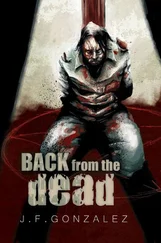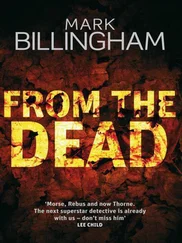“Look at this, Gerlof.” Ljunger had gone a short distance along the gravel track beside the meadow and was pointing to a stone wall in front of a small clump of trees. A solitary, stunted tree was growing next to the wall. “Can you see what this is?” he asked.
Gerlof took a few stumbling steps toward him.
“An apple tree,” he answered quietly.
“Exactly, an old apple tree.” Ljunger gripped his arm and pulled him carefully but firmly toward the shore. Once again he pointed. “And over there,” he said, “you can hardly see it, but it’s actually an old gooseberry bush.” He looked at Gerlof. “And what does that mean?”
“An abandoned garden,” said Gerlof.
“Exactly. There are stones from the foundations of the house beneath the grass.” Ljunger looked around. “I found this beach a few years ago. It’s usually peaceful here, even in the summer. You can sit and think and sometimes...” Ljunger looked at the apple tree again. “Sometimes I just sit here and think about this old tree and about the people who used to live here. Why aren’t they still here, when it’s such a lovely spot?”
“Poverty,” said Gerlof, shivering for the first time.
He was trying to hold himself erect in the wind, not to shake or sway. But all he had on his upper body was a thin shirt and an almost equally thin undershirt, and he was beginning to feel the autumn chill penetrating through the fabric.
“Yes, they would definitely have been poor,” agreed Ljunger. “Maybe they sailed away across the Atlantic, like Nils Kant and thousands of others from Öland. But the point is...” He paused again. “The point is that they never saw all the great opportunities here on this island. People from Öland never have.”
Gerlof merely nodded; Ljunger could say whatever he liked.
“I want to get back in the car,” he said.
“It’s locked,” said Ljunger.
“I’ll freeze to death soon.”
“Go home to Marnäs, then.” Ljunger pointed at the wall beside the stunted tree. “There’s a gap in the wall over there. Behind it a path leads north along the shore, past an old open-air dance floor... It’s actually only a couple of kilometers up to the village, as the crow flies.”
Gerlof wobbled in the wind. He didn’t care what happened now; he had something important to say.
“I know, Gunnar.”
Ljunger looked at him without replying.
“Like I said before... I worked it all out on the bus, when I saw that it was you standing behind Martin Malm.”
Ljunger shrugged. “Ernst Adolfsson waved that picture at me too,” he said, “but he started gabbling about a whole lot of other stuff too, old land registrations and so on. I’m not that easily scared.”
“He got there ahead of me,” said Gerlof tiredly. “I thought Ernst told me everything, but he didn’t. What did he want from you?”
“The quarry. He wanted to buy the quarry from me for a pittance, and in return he wouldn’t tell the whole world what he knew about my dealings with Vera.”
“That wasn’t too much to ask, surely?” said Gerlof.
“Don’t say that,” Ljunger snapped. “The land is worthless now, but it could be extremely valuable in the future. A casino set into the hillside on Öland... who knows? So I turned down his offer.” Ljunger looked at Gerlof. “But you old sea captains overestimate your own importance, I think, if you imagine anyone else is interested in things that happened decades ago.”
“ You’re interested, Gunnar,” Gerlof had to remind him. “Otherwise we wouldn’t be here, you and I.”
“I can’t have a load of old farts running around mouthing off about things,” said Ljunger wearily. “You do understand that, don’t you? It’s not just current projects... We’ve got important plans for Långvik that are with the building authorities at the moment. We’re talking about major investments here. Sixty new plots to the east of the village are going to be sold within the next six months — how much do you think that’s going to be worth?”
Gerlof understood.
“But I’m the only one who knows,” he said. “Nobody else. Not John, or my daughter.”
Ljunger smiled at him, amused. “It’s very noble of you to take all the credit, Gerlof,” he said. “And I believe you.”
“Did you kill Vera Kant too, Gunnar?”
“No, no. She fell and broke her neck on the stairs, so I’ve heard. I’ve never killed anyone.”
“You killed Ernst Adolfsson.”
“No,” said Ljunger. “We had a discussion, Ernst and I. It turned into a minor quarrel.”
“He threw one of his sculptures down into the quarry during the quarrel, didn’t he?”
“He did, yes. And then I gave him a little push and he fell and pulled one of the big stone sculptures down with him. It was an accident, just as the police assumed.”
“You killed Nils Kant,” said Gerlof.
“No.”
“Then Martin did,” said Gerlof. “And Jens? Which of you killed my poor Jens?”
Ljunger wasn’t smiling any longer. He looked at his watch.
“Did Jens bump into you out on the alvar?” Gerlof went on in a louder voice. “Why didn’t you let my grandson live? He was five years old... he was no threat to you.”
“Let’s leave this depressing topic, Gerlof. I have to go now, anyway.”
And it was no doubt true — Gunnar Ljunger had a packed schedule. Killing Gerlof was just one item on his agenda for the day.
Gerlof closed his eyes against the cold and the rain. He wouldn’t be able to stay on his feet much longer. But he had no intention of falling to his knees in front of Gunnar Ljunger, that was beneath his dignity.
“I know where the gemstones are,” he said.
He took one step back toward the car, leaning on his cane. If he got close enough, he might be able to whack it with his cane and put a serious dent in the shiny bodywork.
“The gemstones?”
Ljunger was staring sharply at him, his hand resting on the door handle.
“The soldiers’ spoils of war. I’ve got them and I’ve hidden them. Help me into the car and we’ll go and get them.”
Ljunger merely shook his head, smiling once more.
“Thanks for the offer,” he said. “I asked Nils about them several times, but actually it was mainly Martin who wanted the stones, not me. There isn’t even any guarantee they’re worth anything. For me, Vera’s land was enough... One mustn’t be too greedy.”
And with that he quickly opened the door and got in.
The car engine didn’t even roar, it simply hummed into life, expensive and perfectly tuned.
Ljunger put the Jaguar into reverse and the car glided slowly backward along the gravel track, just as Gerlof managed to take the final step forward and raise his cane.
Too late. Christ!
Gerlof stood there alone on the meadow, helpless. He slowly lowered his cane and watched the car, and with it his overcoat, disappear out of reach.
Ljunger was sitting comfortably at the wheel, not even looking at Gerlof; he’d twisted his head so that he could reverse rapidly along the track. Up by the ridge where the railway line had been, he swung the car around and headed off.
Still further away, almost at the main road, the Jaguar stopped briefly. Gerlof narrowed his eyes against the icy rain and saw Ljunger open the door and hurl out his briefcase, then his overcoat. Then he closed the door and drove off. The sound of the engine died away.
Gerlof remained where he was, with his back to the rain. The bitter wind whistled in his ears.
He was thoroughly soaked and frozen, and would never be able to make it back up to the main road, or to Marnäs. And Ljunger knew that perfectly well.
He lifted one foot and moved his unsteady body in a semicircle, turning himself around with small, wobbly steps. The shoreline was gray and desolate.
Читать дальше












